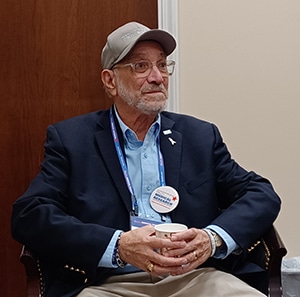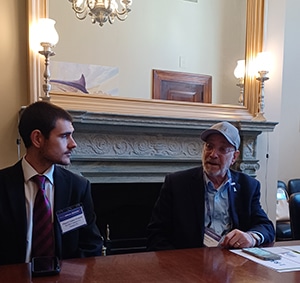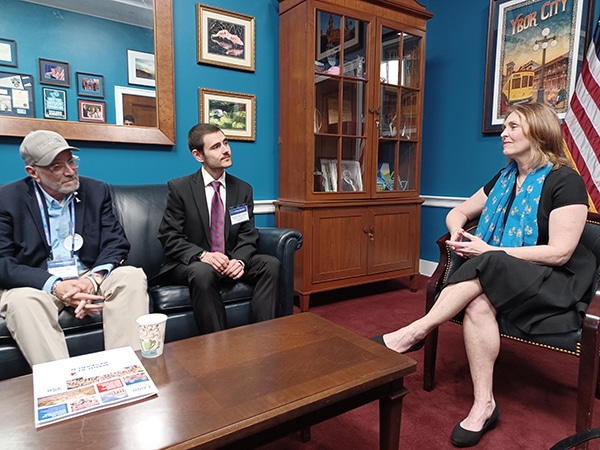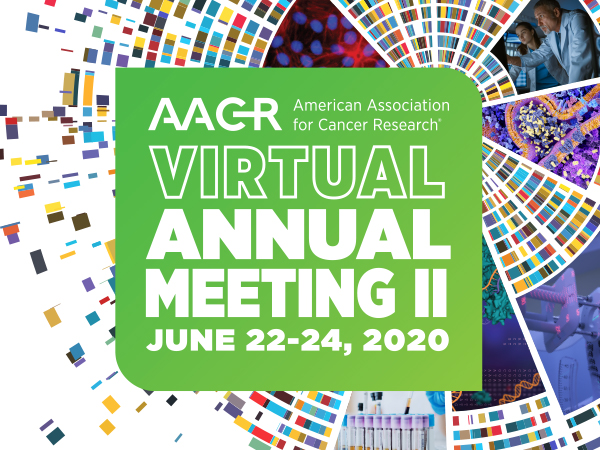Giving Voice to the Need for Robust Cancer Research Funding
In the beginning of his cancer journey, Edward Cutler felt unlucky.
In 2012, he saw an ad suggesting that men his age who had previously smoked should be screened for an abdominal aortic aneurysm. He didn’t have an aneurysm, but the test detected a mass on his liver. Doctors ultimately determined that the liver mass was cancer that had metastasized from his lung, leading to a diagnosis of stage 4 lung adenocarcinoma, a form of non-small cell lung cancer.
Cutler was initially treated with multiple types of chemotherapy, but those treatments failed to produce lasting responses. In January 2015, he entered a phase I trial of a combination of the immune checkpoint inhibitors durvalumab (Imfinzi) and tremelimumab (Imjudo). The drugs helped shrink his tumors, but he developed severe side effects, including colitis, and ended his participation in July 2015.
In 2016, he entered a different phase I immunotherapy trial. This trial, testing taminadenant, an adenosine receptor antagonist, enrolled 80 patients. Over time, 78 dropped out due to side effects or disease progression.

But for two patients, taminadenant worked. Cutler was one of them.
Because taminadenant did not benefit enough patients, the drug did not continue through the clinical trials process, and its manufacturer, Novartis, did not seek approval from the U.S. Food and Drug Administration (FDA). However, Cutler continued to take taminadenant through a “compassionate use” program, which allows patients with life-threatening illnesses to receive experimental treatments outside of the clinical trials process.
Today, Cutler has no evidence of disease. “They call me ‘NED Ed,’” he joked. Today, he feels lucky. But he also knows that his cancer treatment was made possible by the basic, translational, and clinical research carried out in labs around the world. In the United States, much of that research is funded by federal investment in the National Institutes of Health (NIH) and the National Cancer Institute (NCI).
This September, Cutler participated in the 11th annual Rally for Medical Research Hill Day, an annual event in which representatives from nearly 350 of the partnering organizations visit lawmakers on Capitol Hill to advocate for robust, sustained, and predictable annual funding increases for NIH. The American Association for Cancer Research (AACR) is the founding organizer and lead sponsor for the event.
This year, more than 240 scientists, health professionals, and patient advocates from 35 states participated in Hill Day. Cutler, who lives in Tampa, Florida, and received his care at the Moffitt Cancer Center, was part of a delegation that visited Florida lawmakers. In a series of meetings at House and Senate offices, advocates thanked members of Congress for providing NIH with an increase of $17 billion over the last eight years, and asked them to provide the NIH with the highest possible increase to its base program budget in fiscal year 2024. Prior to Hill Day, the Senate Appropriations Committee had recommended $49.22 billion for medical research funding. During the Rally, Cutler and his fellow advocates asked lawmakers to approve no less than that amount.
In U.S. Sen. Marco Rubio’s office, Cutler was joined by Lesa Kirkman, who shared her story in the AACR Cancer Progress Report 2023. Kirkman, of Niceville, Florida, participated in a clinical trial of a gene therapy called nadofaragene firadenovec-vncg (Adstiladrin) after her bladder cancer stopped responding to other treatment. Kirkman, too, currently has no evidence of disease, and the drug received FDA approval in December 2022.
Kirkman was thrilled to come to Washington to tell lawmakers the importance of funding the research that leads to the development of new cancer drugs.
“This was the first new medicine for bladder cancer in 30 years. Before this drug, you couldn’t be cured of bladder cancer without having your bladder removed,” Kirkman said. “I am alive, with a wonderful quality of life, because of this gene therapy.”
Throughout a full day of meetings, Kirkman and Cutler provided lawmakers with living examples of the power of cancer research. Both vowed to continue advocating to ensure continued support for medical research funding.
“I don’t know that I’m going to live the rest of my life without a recurrence,” Cutler said. “If my cancer does recur, I need those researchers to be working on some new treatments.”
An early-career researcher’s perspective
The Rally for Medical Research also provides an opportunity for early-career investigators to share their experience with lawmakers. Miguel Gómez Fontela, PhD, began his medical training in immunology. When his grandfather was diagnosed with lung and throat cancer, Fontela shifted his focus to cancer, and now investigates precision immunotherapies at the Moffitt Cancer Center.
He told U.S. Rep. Kathy Castor that robust federal funding has helped Moffitt establish effective community outreach programs, conduct cutting-edge research, and foster the career development of young investigators like himself. At Moffitt, he serves as president of the postdoctoral association. Earlier this year, he presented a poster at the AACR Annual Meeting 2023.

“The opportunities that I have to grow as a researcher come from NIH funding,” he explained. “This funding helps early-career researchers follow their dreams. If they can’t get funding, they will not be able to build their careers.”
The Florida delegation spent time in House and Senate offices, visiting both Republican and Democratic lawmakers. The advocates pointed out that investment in medical research has benefits that extend well beyond drug development. For example, federal funding helped the Moffitt Cancer Center establish a mobile lung cancer screening program, set to begin in 2024. Such programs can help cancer centers reach underserved populations and can potentially detect cancer at earlier stages, when treatment is most likely to be successful.
Castor thanked Cutler for visiting her in Washington, saying, “You’ve been so important to me in sharing your story.”
Cutler plans to continue to do so. Alongside his lobbying efforts, he routinely counsels patients on how to navigate a cancer diagnosis, from seeking clinical trials to maintaining a positive outlook.
“I tell new patients that there is hope,” he said. “What may be called an incurable disease today may not be incurable tomorrow.”




